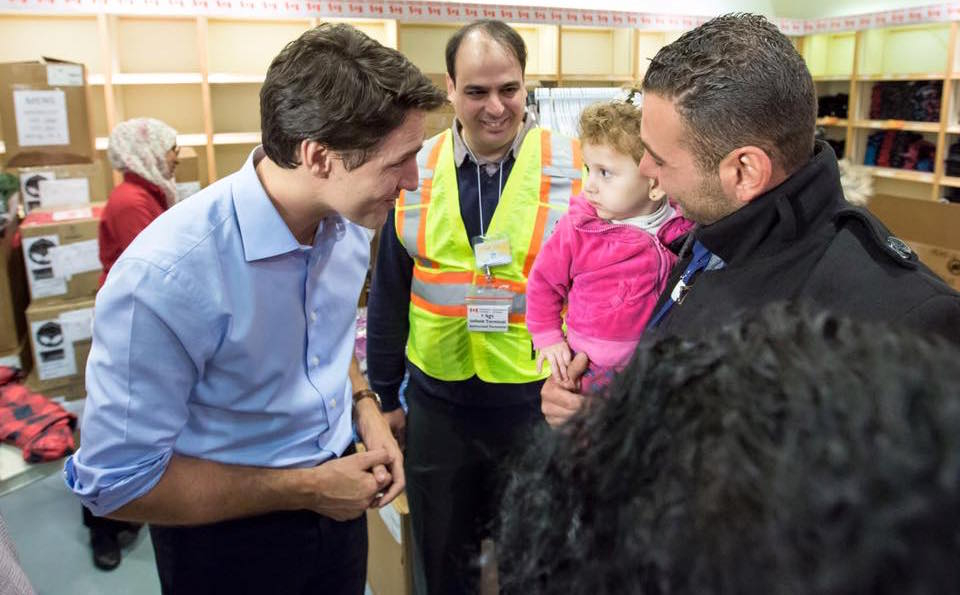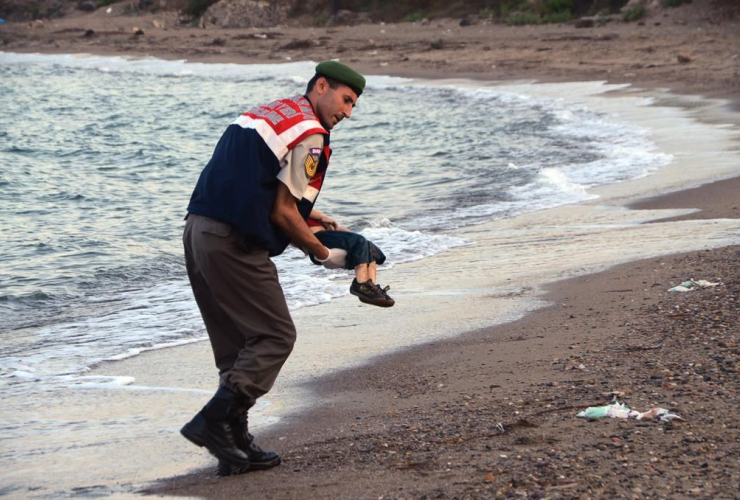As seems to be the case every other week, Prime Minister Justin Trudeau got a healthy dose of attention and praise on the global stage. This time, he was in New York to address the United Nations’ General Assembly and attend the first-ever UN Summit for Refugees and Migrants.
It’s the first-ever summit of its kind because there’s never been a refugee crisis like this in our lifetimes — or in the UN’s lifetime. You’ve heard the facts by now. Right now, more than 65 million people have been forced from their homes. That’s more than at any other time since the end of the Second World War. And there’s no end in sight.
In his speech at the summit on Monday, Trudeau took a bow for Canada’s efforts to take in refugees. Yet when the applause died down, he emphasized how that isn’t enough.
“I don’t want to lose sight of the fact that Canada’s engagement must not stop at resettlement,” the prime minister said. “Now is the time for each of us to consider what more we can contribute. So, in Canada, we’re looking at our options.”
So what are those options? How can we address the forces that are driving people from their homes in the first place?
Researchers have linked the current conflict in Syria to droughts that have been exacerbated by climate change. And it’s not just Syria. Our changing climate is fuelling and amplifying the current humanitarian/security crises that prompted this UN summit. Many other regions are vulnerable to the same dynamics, which is people are talking about “The Ominous Story of Syria's Climate Refugees.”
But here’s the thing: there’s no such thing as a climate refugee. Officially speaking, that is.
The official definition of refugees includes people who are displaced by persecution, war or violence. Someone who has to flee their home because of climate change — or the impacts it has — falls through the cracks.
The declaration from Monday’s refugee summit specifically mentions people who flee “in response to the adverse effects of climate change, natural disasters (some of which may be linked to climate change) or other environmental factors.” Yet they’re still not technically refugees.
That’s a sign of just how ill-prepared we are to deal with what’s coming. As our climate becomes increasingly unstable, the sad truth is there will be climate refugees. Lots of them. Our legal and political system doesn’t have an official grasp of that concept yet, much less an actual response to it.
I’m not the only person who thinks this way. Last week, a bipartisan group of ex-military leaders held the Climate and National Security Forum in Washington D.C. These are soldiers who see a changing climate as “an important, fundamental national security matter.” They know that governments aren’t adequately prepared for that, and are still largely operating within a 20th-century framework of what causes (and resolves) global crises and conflicts.
So Prime Minister Trudeau is right to say that resettling refugees isn’t enough. More needs to be done. Canada should “look at our options,” as he puts it.
We may not be a major military power, but Canada does have other kinds of clout. If we want to help deal with the root causes of the current refugee crisis, and future ones, climate change is a wise area to focus.
This report was made possible thanks to reader subscriptions. Please subscribe today.





Comments